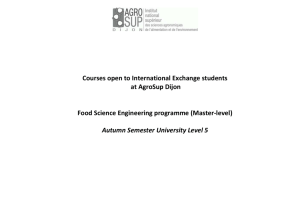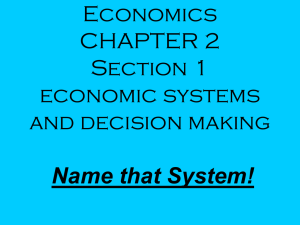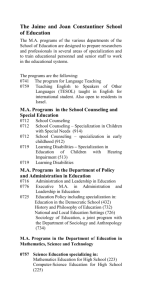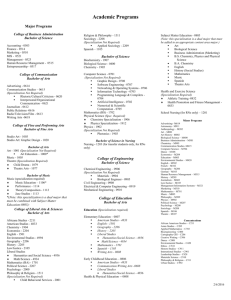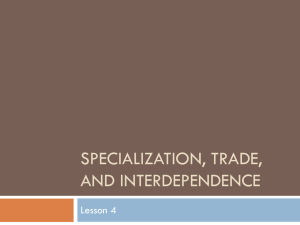SSEF3 - Specialization and voluntary exchange
advertisement
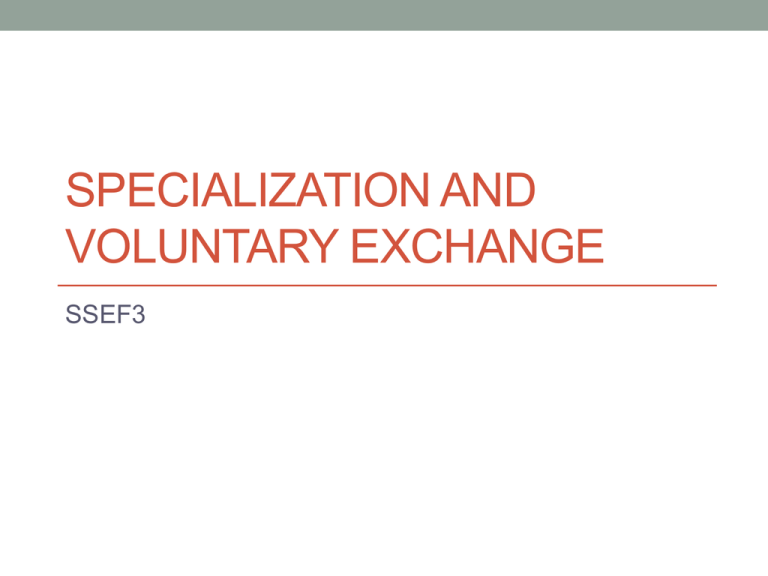
SPECIALIZATION AND VOLUNTARY EXCHANGE SSEF3 Examples of Specialization • The division of labor refers to the practice that the tasks of producing a good or service are divided up into separate tasks. • When workers focus on performing separate tasks, specialization occurs. Examples of Specialization • Within the economy as a whole, the division of labor explains why even if you bake your own bread, you typically don't grow your own wheat, grind it into flour, build your own oven, make your own bread-pans and so on. • Instead, people specialize in a few skills and then take the wages that they earn from those skills to purchase the other goods and services that they desire from other specialists. • In this way, the division of labor and specialization is the basis for an economy to exist. Adam Smith – The Wealth of Nations • Adam Smith started his classic book The Wealth of Nations with a discussion of the division of labor as the basis for understanding how an economy works. • He identified three reasons why the division of labor increases output: workers who specialize on one job become much better at doing it; with specialization, the time that it would take to switch between jobs is eliminated; and workers who specialize on one job often invent more effective ways or new machines for doing the job. • But as Adam Smith makes clear, specialization is possible only when people are able to coordinate their production and consumption decisions with each other. The study of economics is largely concerned with explaining how this coordination takes place. Adam Smith – The Wealth of Nations • He identified three reasons why the division of labor increases output: • Workers who specialize on one job become much better at doing it • With specialization, the time that it would take to switch between jobs is eliminated • Workers who specialize on one job often invent more effective ways or new machines for doing the job. Adam Smith – The Wealth of Nations • But as Adam Smith makes clear, specialization is possible only when people are able to coordinate their production and consumption decisions with each other. • The study of economics is largely concerned with explaining how this coordination takes place. Voluntary Exchange • People do not make everything that they and their family use: that is, • They do not grow all their own food, • Sew their own clothes, • Build their own house and • Provide themselves personally with health care and education. • Instead, people focus on a particular job and then use the wages that they earn from that job to purchase the goods and services they desire. • In this way, an economy forms an interlinked network of trade, exchange and interdependence. Voluntary Exchange • Specialization is the basis of trade and interdependence • • • • among individuals, cities, regions and countries. Most countries do not produce all of what they consume. Instead, they focus more heavily on producing certain products and trading with other countries. Thus, the global economy is a network of trade and interdependence. When trade is voluntary and non-fraudulent, both parties in the trade gain.

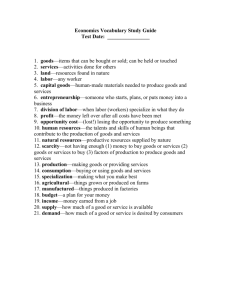

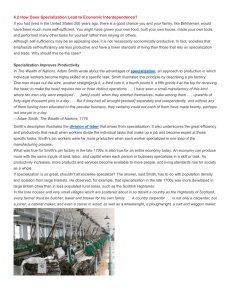
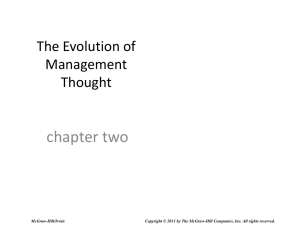

![[#KSQATC-450] Verify the system only displays the](http://s3.studylib.net/store/data/005865893_1-db40198f6f6ba89b753abc7c34317f6c-300x300.png)
